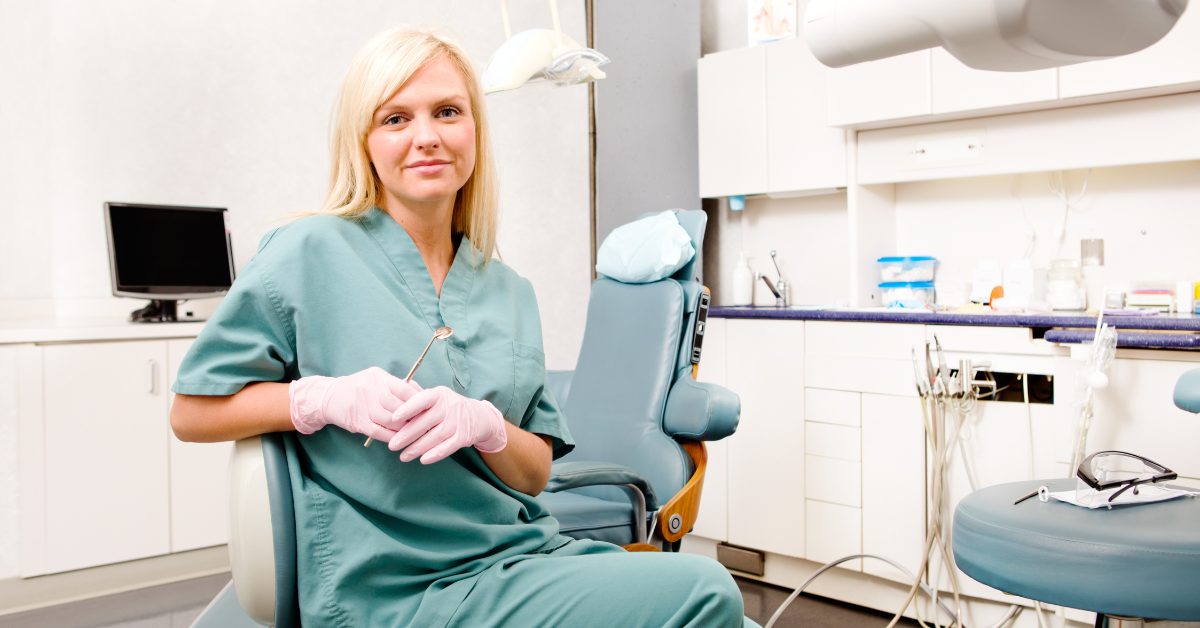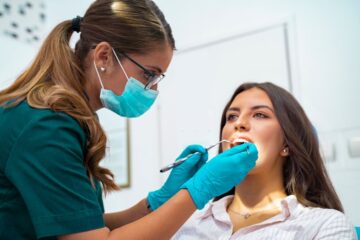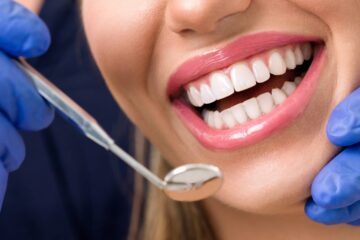Do you want a sparkling smile that dazzles like a diamond? Then listen up, because regular visits to a hygienist are the secret to maintaining optimal oral health. Wondering how often you should see a hygienist? We’ve got you covered.
In this article, we’ll dive into the importance of regular hygienist visits, the recommended frequency of appointments, and the factors that influence your hygienist schedule. So, let’s get started on your journey to a healthier, more radiant smile!
The Importance of Regular Hygienist Visits
If you want to maintain good oral health, it’s essential to schedule regular visits with a hygienist. Regular dental cleanings have numerous benefits that contribute to the overall health and well-being of your mouth.
First and foremost, regular cleanings help prevent the buildup of plaque and tartar, which can lead to gum disease and tooth decay. By removing these harmful substances, your hygienist can help keep your gums healthy and prevent the development of cavities.
Additionally, during your dental cleaning, your hygienist will thoroughly examine your mouth for any signs of oral health issues, such as gum disease or oral cancer. Early detection of these conditions is crucial for successful treatment and prevention of further complications.
Neglecting dental hygiene and skipping regular visits with a hygienist can have long-term effects on your oral health. Without regular cleanings, plaque and tartar can accumulate, leading to inflammation of the gums and eventual gum disease. Untreated gum disease can result in tooth loss and even impact your overall health, as it has been linked to other systemic conditions like heart disease and diabetes.
Furthermore, neglecting dental hygiene can also lead to bad breath, stained teeth, and a less attractive smile, which can affect your self-confidence and interpersonal relationships.
Recommended Frequency for Hygienist Appointments
To maintain optimal oral health, you should schedule regular appointments with a hygienist every six months. This is the recommended frequency for hygienist appointments. Regular dental check-ups are essential for keeping your teeth and gums healthy. By visiting a hygienist every six months, you can prevent dental problems before they become more serious and costly to treat.
During these appointments, the hygienist will thoroughly clean your teeth, removing plaque and tartar buildup that can’t be removed through regular brushing and flossing. They’ll also assess the health of your gums and check for any signs of gum disease. Additionally, the hygienist will provide valuable advice on maintaining good oral hygiene at home, such as proper brushing and flossing techniques.
By sticking to this recommended frequency for hygienist appointments, you can ensure that any potential oral health issues are detected early on. This can help prevent the development of more serious problems, such as tooth decay and gum disease. It also allows for timely intervention and treatment, if necessary.
Factors Influencing Your Hygienist Schedule
Consideration of various factors can influence how often you should schedule appointments with a hygienist. Here are three key factors to keep in mind when determining your hygienist schedule:
- Dental insurance coverage: Dental insurance plans often cover a certain number of preventive visits per year. Review your insurance policy to understand how many hygienist visits are covered and adjust your schedule accordingly. It’s important to take advantage of the benefits provided by your insurance to maintain optimal oral health.
- Cost of hygienist visits: The cost of hygienist visits can vary depending on factors such as location and the specific services provided. If cost is a concern for you, it may be necessary to adjust the frequency of your visits. Discussing your budget with your hygienist can help you come up with a schedule that suits your financial situation.
- Individual oral health needs: Everyone’s oral health needs are different. Factors such as the presence of gum disease, dental conditions, and personal habits can impact how often you should see a hygienist. Your hygienist will assess your oral health and recommend a schedule that addresses your specific needs.
Taking these factors into account will help you determine the ideal frequency for your hygienist appointments. However, there may be signs that indicate the need for more frequent visits. Let’s explore these signs in the next section.
Signs That You Need to See a Hygienist Sooner
If you notice any unusual changes in your dental health, such as bleeding gums or persistent bad breath, it may be a sign that you need to see a hygienist sooner rather than later. While regular dental visits are important for maintaining good oral health, there are certain situations that may require immediate attention from a hygienist.
Emergency situations, such as severe tooth pain or a knocked-out tooth, should be addressed as soon as possible. These issues can be signs of underlying dental problems that need immediate treatment. Ignoring these symptoms may result in further damage or complications.
Additionally, common dental problems like cavities or gum disease shouldn’t be ignored. If you experience tooth sensitivity, toothache, or swollen gums, it’s essential to seek professional help promptly. These symptoms may indicate the need for a thorough cleaning or a more intensive treatment.
Furthermore, if you have undergone dental procedures recently and notice any problems or complications, it’s crucial to consult a hygienist. They can assess the situation and provide appropriate care to ensure a successful recovery.
Tips for Maintaining Good Oral Hygiene Between Hygienist Visits
For optimal oral health, it’s important that you consistently brush twice a day and floss daily between your hygienist visits. By following these simple tips, you can maintain good oral hygiene and prevent plaque buildup:
- Use proper brushing techniques: Make sure to brush your teeth for at least two minutes each time. Use a soft-bristled toothbrush and gentle, circular motions to clean all surfaces of your teeth. Don’t forget to brush your tongue as well, as it can harbour bacteria.
- Floss daily: Brushing alone isn’t enough to remove all the plaque and food particles between your teeth. Flossing helps to reach those tight spaces and prevents plaque buildup. Take a generous amount of floss and gently slide it between your teeth, curving it around each tooth in a C shape.
- Rinse with mouthwash: After brushing and flossing, rinse your mouth with an antibacterial mouthwash. This helps to kill any remaining bacteria and freshen your breath. Choose a mouthwash that contains fluoride to strengthen your teeth.
Frequently Asked Questions
Can I See a Hygienist Instead of a Dentist for Regular Check-Ups?
Instead of a dentist, you can see a hygienist for regular check-ups. While dentists focus on overall oral health, hygienists specialise in preventive care and cleanings. Regular hygienist visits can help maintain healthy gums and prevent dental issues.
Are There Any Risks or Side Effects Associated With Frequent Hygienist Visits?
Frequent visits to a hygienist carry minimal risks or side effects, as they mainly focus on preventive care. However, it’s always wise to maintain good oral hygiene habits and consult with a dental professional for personalised advice.
How Long Does a Typical Hygienist Appointment Take?
On average, a hygienist appointment takes about 45 minutes. To make the most of your time, arrive early, brush and floss beforehand, and communicate any concerns or questions you have.
What Should I Expect During a Hygienist Appointment?
During a dental cleaning, you can expect the hygienist to remove plaque and tartar, polish your teeth, and provide oral hygiene instructions. Regular dental cleanings have many benefits, including preventing gum disease and maintaining a healthy smile.
Is It Necessary to Visit a Hygienist if I Have Good Oral Hygiene Habits at Home?
If you have good oral hygiene habits at home, it’s still important to see a hygienist regularly. They can provide a professional cleaning that goes beyond what you can do yourself, preventing issues and promoting overall oral health.
Conclusion
In conclusion, visiting a hygienist regularly is crucial for maintaining good oral hygiene and preventing dental problems. Just like tending to a garden, regular care and attention are necessary to ensure a healthy and beautiful smile. By following the recommended frequency for hygienist appointments and taking into account individual factors, you can keep your oral health in check. Remember, your hygienist is your partner in achieving a vibrant and confident smile.





